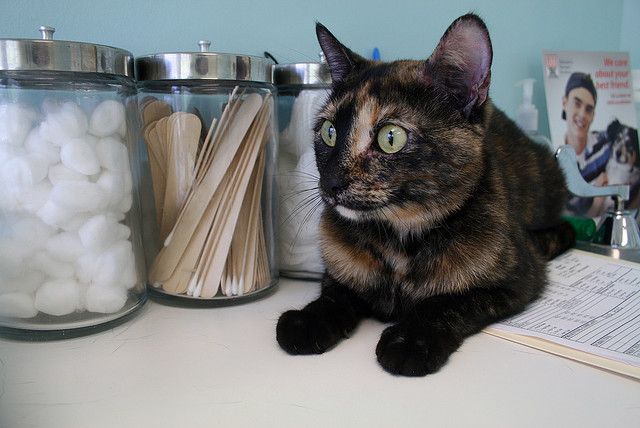Welcome to our weekly 'Ask a Vet from the SF SPCA' feature on 7x7.com. Dr. Jeannine Berger, DVM, DACVB is a board certified veterinary behaviorist who counsels guardians whose pets’ issues are beyond the scope of training. Think of her as a pet shrink at your service. Ask your own questions.
Q: My dog is so scared of the veterinarian – do I really need to take my dog in for a shot if the experience seems to be more stressful then the benefit of the vaccine?
A: This is an excellent question and opens up a discussion very dear to my heart. Good welfare does not just include good health. Animal welfare has evolved over the past 100 yrs and has just reached a new level with the AVMA recognizing Welfare as a specialty in veterinary medicine. 20 years ago preventing infectious diseases was one of the main concerns in veterinary medicine but now the focus is shifting to a holistic approach. Including the evaluation of emotions and behavior into the decision making process for diagnostics and treatments should not be considered an "after- thought". Veterinary medicine can no longer exist without taking all aspects of an animal's well-being into account while making educated decisions and policies. We, as a profession have to continue to strive to be advocates of our patients.
Last week I had a two-year-old dog presented for update of its yearly vaccines. The dog was so scared that he would growl, snarl, and even urinated out of fear even when merely approached. Instead of traumatizing my patient further I spend the entire appointment time discussing with the owner how we can work together on making future vet visits more successful and how the owner can prepare his pet for the next visit to make this a more pleasurable experience for all of us.
A welfare centered approach to veterinary medicine fulfills all of our patient’s needs including nutritional, environmental, health, behavior and mental needs. Unpleasant experiences such as a traumatic vet visit can cause significant suffering.
How to prepare your pet for a vet visit:
1. Start early – bring your puppy/kitten to the vet – the series of puppy/kitten vaccines are a fabulous opportunity to make this a positive socialization experience and keeps your pet free from infectious diseases - bring the pets favorite treats and toys to the exam
2. Familiarize your kitten to the carrier – make the crate a favorite hiding place in the home and not a predictor for transportation to a scary place
3. Stop by the vet’s office on a regular basis throughout the year to check your pets weight, to pick up high quality food, flea and heartworm prevention or just to get a treat from the receptionist.
4. Should your pet already be fearful, take your time to create positive experiences in the waiting area or even in the parking lot. You can do this without having an appointment.
5. If your pet has shown signs of aggression in the past in any situations that include handling – prepare your pet at home to wearing a basket muzzle (do not use a cloth muzzle) – it is important that your pet can breathe freely and can accept treats while being examined this is easily possible with a well-fitting basket muzzle. If you bring your dog to the vet wearing a muzzle comfortably you show respect for your veterinarian’s time and safety and immediately earn your veterinarians respect back.
6. Be proactive during the appointment with your pet and don’t make excuses or even worse punish your pet for any unwanted behavior: don’t say my pet is protecting me – they rarely are in fact they are protecting themselves from a perceived threat. You can help your pet much more if you have high value treats ready and ask your dog to sit or lay down for a reward. If the pet can perform a few commands or tricks for the owner and can then do the same for your vet your dog will feel much safer and more at ease.
7. Last but not least tell your veterinarian that you appreciate a welfare centered approach for your pet.
Related Articles
